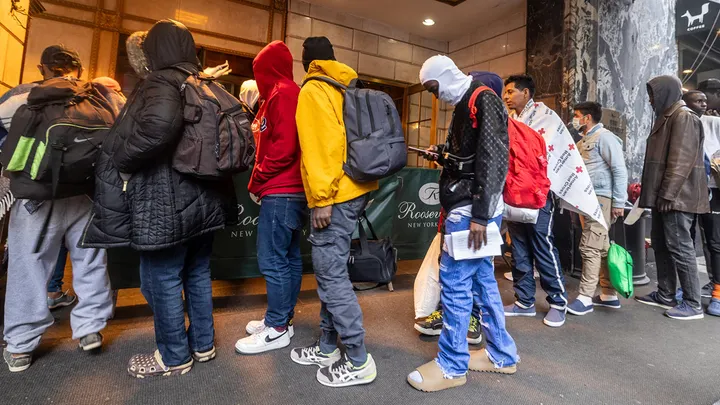The Roosevelt Hotel migrant shelter, a historic building repurposed as a refuge for asylum seekers, has played a critical role in New York City’s response to the ongoing migrant crisis. With approximately 1,000 rooms, the shelter has accommodated more than 173,000 migrants since it opened in May 2023, serving as a key intake and processing center for newly arrived individuals and families. The hotel became a symbol of the city’s efforts to provide temporary housing, food, and essential services to those seeking refuge.
In a video announcement, Mayor Eric Adams stated that the planned closure of the Roosevelt Hotel shelter marks a significant milestone in the city’s approach to handling the migrant situation. The closure, expected to take place by June, is part of broader efforts to streamline the city’s humanitarian response while addressing financial constraints. Adams attributed this development to the effectiveness of policies and strategies the city has pushed for at the federal and state levels, particularly those aimed at managing migrant arrivals at the southern border.
New York City has experienced a sharp decline in the number of migrants relying on its shelter system. In January 2024, the city housed approximately 69,000 migrants, but that figure has since dropped to fewer than 45,000. At the height of the crisis, as many as 4,000 migrants were arriving in New York each week, overwhelming city resources. However, in recent months, that number has significantly decreased to an average of 350 weekly arrivals, easing some of the pressure on shelters and social services.
Despite its role in providing temporary relief, the Roosevelt Hotel shelter has also been associated with challenges, including reports of overcrowding, security concerns, and incidents linked to gang activity. The closure of this site is part of a larger initiative by city officials to reduce costs and consolidate migrant services. Adams had previously announced plans to shut down 25 shelters across the city as part of budget-cutting measures aimed at stabilizing municipal finances.
While the Roosevelt Hotel will no longer function as a migrant shelter, city officials have assured that alternative registration and assistance centers will remain operational to help newly arriving asylum seekers. These centers will continue to provide guidance on housing, legal aid, and other essential services to ensure that migrants still have access to necessary resources as they navigate their asylum claims and transition into the city.

